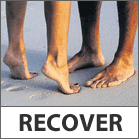
FOLLOWING the dramatic fall from grace of construction and banking, the drinks industry has surprisingly emerged as the latest sector to seek government help to avoid economic disaster.
Last week the industry's umbrella body, the Drinks Industry Group of Ireland (DIGI), urged the government to freeze VAT and excise rates on alcohol in the face of falling consumption and cross-border shopping.
DIGI's call came as it released a report compiled by economist Anthony Foley of Dublin City University indicating that average alcohol consumption per Irish adult fell by 7.3% in 2008.
"Last year saw the weakest performance [in the drinks industry] in 25 years. It is weaker than what we would have called the disastrous year of 2003 when consumption declined by 4.5% when the government significantly increased excise," said Foley.
DIGI chairman Kieran Tobin said over 9,000 jobs had been lost in the sector last year as result, and another 10,000 are under threat.
He said Heineken's decision to close the Beamish brewery in Cork and Diageo's second thoughts about its planned new Guinness brewery in Leixlip were linked to the downturn in the industry's fortunes.
"Consumers in Ireland pay the high alcohol taxes in the EU anyway so to add to that burden would be deeply unfair and regressive. In fact, there is probably an argument that government should look at decreasing excise rates in a future budget," he said.
Closer examination of the statistics, however, suggests that the situation is not as simple as DIGI suggests. Although average alcohol consumption per adult has fallen, it remains the second-highest in the OECD, behind Luxembourg.
Irish adults consume an average of 12.4 litres of pure alcohol a year, compared to an OECD average of 9.6 litres. This state of affairs is relatively new: Irish alcohol consumption was below the OECD average until 1990.
Meanwhile, excise rates for some classes of alcohol have been frozen for years, despite significant pressure on the government from public health organisations.
Of the main classes of drinks, only excise on wine has risen since 2003: the rate for beer has been static for almost 15 years while the last increase in excise on spirits was in December 2002.
In addition, the DIGI report also indicates that soft drinks and bottled water, which aren't subject to excise, also experienced sharp sales declines in 2008.
Tobin said he accepted these figures, but that the point remained that the Irish drinks industry was under severe pressure because of high excise duties and VAT.
He said DIGI was hoping that government would realise the extent of the industry's difficulties before the emergency budget next week.
"We are obviously facing into a supplementary budget, and with all the talk about the old reliables being hit, we are making the point that revenue from these items may not be as reliable as before," said Tobin, who is also a director of Irish Distillers which produces Jameson whiskey.
He said cross-border shopping, which has increased sharply because of the increase in VAT last year, was proving particularly damaging to the state's excise revenues.
"We're starting to reach the point of diminishing returns from an excise point of view. In the North, they are using drink as a footfall driver, which is having a severe impact on pubs and entertainment venues in border areas," Tobin claimed.
He added that indigenous alcohol producers also felt their business was being damaged by cross-border shopping because customers tended to buy different brands across the border.
"Some people are particularly dedicated to brands such as Jameson or Guinness, but purchasers of beer and spirits are far more profligate with their choices and will buy different brands based on promotions when they travel to the North. This takes more money and jobs out of the economy."
Public health professionals, however, are unimpressed by the drinks industry's plea for government action to prop up alcohol consumption.
A senior lecturer in public health at Trinity College Dublin, Professor Joseph Barry, believes the industry's focus on excise and government revenues is a red herring.
"The industry is solely interested in the good of the industry. The economic cost of alcohol-related problems in Ireland is actually much higher than people think: you can see it in any accident and emergency department at night," he said.
Barry said the benefits of reduced alcohol consumption included reduced employee absenteeism, increased income tax for the state and a reduction in the burden of alcohol-related illness on the health service.
"Health professionals are hoping to get Irish average consumption back to the European average, whereas the industry seems to want us to drink our way out of recession. The alcohol industry would like us to build our economy on drink, which would be a disastrous course of action to take," he said.
Irish Drinks Still Cheaper in the UK
DESPITE the drinks industry's fixation with excise, taxes aren't wholly responsible for the difference in drink prices between Ireland and Britain.
In fact, even when taxes are stripped out, many drinks produced in Ireland are actually cheaper abroad.
A quick comparison of prices on supermarket chain Tesco's British and Irish websites bears this out. For instance, a 70cl bottle of Jameson whiskey costs €8.79 in Britain, excluding taxes, whereas the same bottle here would cost €11.22.
Guinness, another iconic Irish drink, is also cheaper in Britain: a pack of 12 cans there is priced at €6.78 excluding taxes, compared to €10.63 for ten slightly larger cans in Ireland.
According to the industry, this price difference is due to the higher cost of doing business in Ireland.



 del.icio.us
del.icio.us digg
digg Facebook
Facebook






